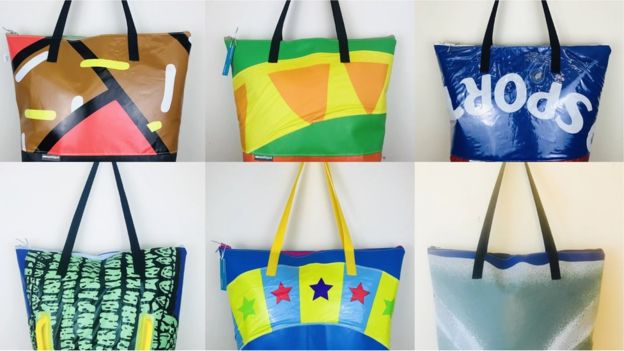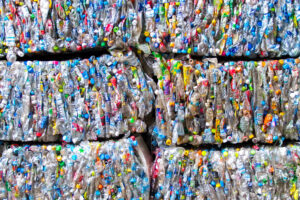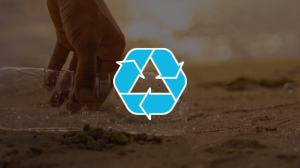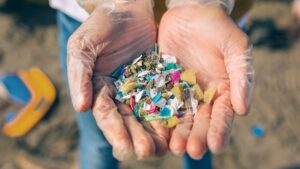Plastic waste: What to do with your inflatable when it goes pop
Since 2017, a company from Isle of Wight, England has been collecting discarded inflatables and turning them into accessories. So far they have save saved over 100 tonnes of inflatable plastic pool unicorns, doughnuts, and swans, as well as indoor air mattresses from entering landfill.
The Story
By: Hazel Shearing, BBC News
It is rare to make it through a summer holiday without seeing a giant rubber ring or lilo bobbing around in the pool – but often their days are numbered.
“Absolute tat,” one unhappy customer wrote below a listing for a blow-up unicorn on Amazon. “Head was punctured before we’d even used it.”
The unicorn is one of more than 80,000 results returned when searching “pool inflatable”, and they feature in thousands of social media posts.
But, as society becomes more conscious of its plastic waste, is it time to cut back on the holiday habit? And what should you do when your pool inflatable, itself, pops?
Hundreds discarded
Environmental campaigners say cheap swimming inflatables are often discarded once they break, and end up in the sea or in landfill.
Georgia Wyatt-Lovell and her husband Steven Lovell, from the Isle of Wight, have come up with an alternative solution.
Since 2017, their company has been collecting inflatables and turning them into accessories. She says that the business has saved over 100 tonnes of material from landfill.
“They’re quite nice, the objects, and people have memories attached to them,” she says, recalling one customer who was proposed to on an inflatable flamingo, and asked her to turn it into a bag.
“People want to share the colours and the stories behind them. The whole business for me has really been about stories: stories of the beach, stories of British heritage.”
One group working with the couple to avoid plastic waste is Plastic Free North Devon.
Claire Moodie, the charity’s co-ordinator, says it has collected 500 abandoned inflatables – including both air beds and pool inflatables – from seven campsites in the coastal village of Croyde this summer alone.
The group has teamed up with an artist to create an installation on a local beach in September, which she hopes will raise awareness of what she calls “unconscious consumerism”.
She said upcycling is “obviously great”, but added: “How can we raise the profile of the amount of waste that is collected just from one village?
“And how that might be amplified across the whole of the South West?”
‘Death trap’ for sea life
Plastic inflatables are often made from flexible PVC – polyvinyl chloride – which, according to the British Plastics Federation, is a durable and long-lasting material.
But PVC is almost never collected from households for recycling.
Martin Dorey runs a beach cleaning campaign, #2minutebeachclean, on the north Cornish coast and says he finds punctured inflatables left on the beach.
“They just get abandoned because people don’t know what to do with them. They’re so cheap that they’ve got no worth, which is just shocking,” he says.
He adds that the environmental impact is “appalling” because the waste goes to landfill – and fossil fuels are used in their production and transportation.
“If it gets into the sea it’ll get broken down into pieces and harm wildlife. They can get entangled into them or they can eat them. If it gets in the ocean it’s just a death trap,” he says.




